Il Vigneto
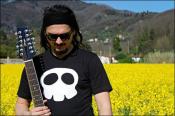
Salve da Joe Natta, vi invio la mia nuova canzone contro la guerra uscita il 25 aprile 2015.
Grazie e a presto!
Grazie e a presto!
Nello scrigno dei pensieri infranti
(continuer)
(continuer)
envoyé par Joe Natta 28/4/2015 - 18:59
Siamo tutti omosessuali
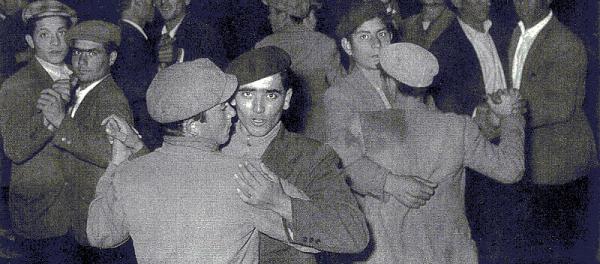
Oppure vogliamo davvero ritornare
ai tempi in cui la gente come me prendeva il mare,
spediti in esilio su quell'isola lontana
nel nome della virilità Italiana?
I fascisti avevano creato una “isola gay” in Italia per mandare al confino gli omosessuali
DI ALAN JOHNSTON – 19 GIUGNO 2013
PUBBLICATO IN: BRASILE, GRAN BRETAGNA
75 anni fa, durante il periodo fascista in Italia, un gruppo di uomini etichettati come “degenerati” furono cacciati dalle loro case e confinati su un’isola.
Furono sottoposti al regime carcerario, ma alcuni di loro raccontano di aver vissuto un’esperienza liberatoria in quella che sarebbe stata la prima comunità gay del paese.
Ogni anno i turisti sono attratti dalla bellezza di questa piccola fila di isole vulcaniche nell’Adriatico [NdR: L’arcipelago delle Tremiti non é di origine vulcanica come indicato, ma sedimentaria]
Ma proprio qualche giorno fa un gruppo... (continuer)
ai tempi in cui la gente come me prendeva il mare,
spediti in esilio su quell'isola lontana
nel nome della virilità Italiana?
I fascisti avevano creato una “isola gay” in Italia per mandare al confino gli omosessuali
DI ALAN JOHNSTON – 19 GIUGNO 2013
PUBBLICATO IN: BRASILE, GRAN BRETAGNA
75 anni fa, durante il periodo fascista in Italia, un gruppo di uomini etichettati come “degenerati” furono cacciati dalle loro case e confinati su un’isola.
Furono sottoposti al regime carcerario, ma alcuni di loro raccontano di aver vissuto un’esperienza liberatoria in quella che sarebbe stata la prima comunità gay del paese.
Ogni anno i turisti sono attratti dalla bellezza di questa piccola fila di isole vulcaniche nell’Adriatico [NdR: L’arcipelago delle Tremiti non é di origine vulcanica come indicato, ma sedimentaria]
Ma proprio qualche giorno fa un gruppo... (continuer)
dq82 28/4/2015 - 17:45
All of No Man's Land Is Ours
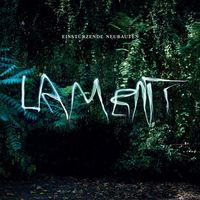
2014
Lament
The album version of LAMENT should be heard as a studio reconstruction of a work primarily designed to be performed live, rather than an official new Einstürzende Neubauten LP proper.
In truth, the piece can only be fully realised, as well as best experienced, in its physical embodiment, performed on or by founding member Andrew Unruh’s gigantic instruments and noise generating devices that visually evoke the horrors the work describes or embeds in the sounds they conjure from the filth and terror of the industrialised 20th century world at war with itself.
But in fulfilling what at first appears to be a surprise commission for such a formidable longtime outsider group, Einstürzende Neubauten transformed the earthy, idiosyncratic contents they mined from academic, state, music hall and internet archives with the help of their two researchers into a richly complex cycle of... (continuer)
Lament
The album version of LAMENT should be heard as a studio reconstruction of a work primarily designed to be performed live, rather than an official new Einstürzende Neubauten LP proper.
In truth, the piece can only be fully realised, as well as best experienced, in its physical embodiment, performed on or by founding member Andrew Unruh’s gigantic instruments and noise generating devices that visually evoke the horrors the work describes or embeds in the sounds they conjure from the filth and terror of the industrialised 20th century world at war with itself.
But in fulfilling what at first appears to be a surprise commission for such a formidable longtime outsider group, Einstürzende Neubauten transformed the earthy, idiosyncratic contents they mined from academic, state, music hall and internet archives with the help of their two researchers into a richly complex cycle of... (continuer)
Hello, Central, Hello, hurry, Give me four-oh-three; Hello, Mary, Hello, Jerry, Yes, yes, this is me! Just landed at the pier And found the telephone, We’ve been parted for a year, Thank God, at last I’m home! Haven’t time to talk a lot, Though I’m feeling mighty gay; Listen, sweet forget-me-not, I’ve only time to say:
(continuer)
(continuer)
envoyé par dq82 28/4/2015 - 16:12
Parcours:
La Grande Guerre (1914-1918)
Der Beginn des Weltkrieges 1914 (unter Zuhilfenahme eines Tierstimmenimitators)

2014
Lament
The album version of LAMENT should be heard as a studio reconstruction of a work primarily designed to be performed live, rather than an official new Einstürzende Neubauten LP proper.
In truth, the piece can only be fully realised, as well as best experienced, in its physical embodiment, performed on or by founding member Andrew Unruh’s gigantic instruments and noise generating devices that visually evoke the horrors the work describes or embeds in the sounds they conjure from the filth and terror of the industrialised 20th century world at war with itself.
But in fulfilling what at first appears to be a surprise commission for such a formidable longtime outsider group, Einstürzende Neubauten transformed the earthy, idiosyncratic contents they mined from academic, state, music hall and internet archives with the help of their two researchers into a richly complex cycle of... (continuer)
Lament
The album version of LAMENT should be heard as a studio reconstruction of a work primarily designed to be performed live, rather than an official new Einstürzende Neubauten LP proper.
In truth, the piece can only be fully realised, as well as best experienced, in its physical embodiment, performed on or by founding member Andrew Unruh’s gigantic instruments and noise generating devices that visually evoke the horrors the work describes or embeds in the sounds they conjure from the filth and terror of the industrialised 20th century world at war with itself.
But in fulfilling what at first appears to be a surprise commission for such a formidable longtime outsider group, Einstürzende Neubauten transformed the earthy, idiosyncratic contents they mined from academic, state, music hall and internet archives with the help of their two researchers into a richly complex cycle of... (continuer)
Achtung
(continuer)
(continuer)
envoyé par dq82 28/4/2015 - 16:07
Parcours:
La Grande Guerre (1914-1918)
How did I die?

2014
Lament
The album version of LAMENT should be heard as a studio reconstruction of a work primarily designed to be performed live, rather than an official new Einstürzende Neubauten LP proper.
In truth, the piece can only be fully realised, as well as best experienced, in its physical embodiment, performed on or by founding member Andrew Unruh’s gigantic instruments and noise generating devices that visually evoke the horrors the work describes or embeds in the sounds they conjure from the filth and terror of the industrialised 20th century world at war with itself.
But in fulfilling what at first appears to be a surprise commission for such a formidable longtime outsider group, Einstürzende Neubauten transformed the earthy, idiosyncratic contents they mined from academic, state, music hall and internet archives with the help of their two researchers into a richly complex cycle of... (continuer)
Lament
The album version of LAMENT should be heard as a studio reconstruction of a work primarily designed to be performed live, rather than an official new Einstürzende Neubauten LP proper.
In truth, the piece can only be fully realised, as well as best experienced, in its physical embodiment, performed on or by founding member Andrew Unruh’s gigantic instruments and noise generating devices that visually evoke the horrors the work describes or embeds in the sounds they conjure from the filth and terror of the industrialised 20th century world at war with itself.
But in fulfilling what at first appears to be a surprise commission for such a formidable longtime outsider group, Einstürzende Neubauten transformed the earthy, idiosyncratic contents they mined from academic, state, music hall and internet archives with the help of their two researchers into a richly complex cycle of... (continuer)
I was in a crater
(continuer)
(continuer)
envoyé par dq82 28/4/2015 - 16:00
Parcours:
La Grande Guerre (1914-1918)
Where Have all the Flowers Gone

La versione in tedesco degli Einstürzende Neubauten tratta da Lament del 2014
dq82 28/4/2015 - 15:52
Lament

2014
Lament
The album version of LAMENT should be heard as a studio reconstruction of a work primarily designed to be performed live, rather than an official new Einstürzende Neubauten LP proper.
In truth, the piece can only be fully realised, as well as best experienced, in its physical embodiment, performed on or by founding member Andrew Unruh’s gigantic instruments and noise generating devices that visually evoke the horrors the work describes or embeds in the sounds they conjure from the filth and terror of the industrialised 20th century world at war with itself.
But in fulfilling what at first appears to be a surprise commission for such a formidable longtime outsider group, Einstürzende Neubauten transformed the earthy, idiosyncratic contents they mined from academic, state, music hall and internet archives with the help of their two researchers into a richly complex cycle of... (continuer)
Lament
The album version of LAMENT should be heard as a studio reconstruction of a work primarily designed to be performed live, rather than an official new Einstürzende Neubauten LP proper.
In truth, the piece can only be fully realised, as well as best experienced, in its physical embodiment, performed on or by founding member Andrew Unruh’s gigantic instruments and noise generating devices that visually evoke the horrors the work describes or embeds in the sounds they conjure from the filth and terror of the industrialised 20th century world at war with itself.
But in fulfilling what at first appears to be a surprise commission for such a formidable longtime outsider group, Einstürzende Neubauten transformed the earthy, idiosyncratic contents they mined from academic, state, music hall and internet archives with the help of their two researchers into a richly complex cycle of... (continuer)
DIE LIE DEN
(continuer)
(continuer)
envoyé par dq82 28/4/2015 - 15:44
Parcours:
La Grande Guerre (1914-1918)
Achterland

2014
Lament
The album version of LAMENT should be heard as a studio reconstruction of a work primarily designed to be performed live, rather than an official new Einstürzende Neubauten LP proper.
In truth, the piece can only be fully realised, as well as best experienced, in its physical embodiment, performed on or by founding member Andrew Unruh’s gigantic instruments and noise generating devices that visually evoke the horrors the work describes or embeds in the sounds they conjure from the filth and terror of the industrialised 20th century world at war with itself.
But in fulfilling what at first appears to be a surprise commission for such a formidable longtime outsider group, Einstürzende Neubauten transformed the earthy, idiosyncratic contents they mined from academic, state, music hall and internet archives with the help of their two researchers into a richly complex cycle of... (continuer)
Lament
The album version of LAMENT should be heard as a studio reconstruction of a work primarily designed to be performed live, rather than an official new Einstürzende Neubauten LP proper.
In truth, the piece can only be fully realised, as well as best experienced, in its physical embodiment, performed on or by founding member Andrew Unruh’s gigantic instruments and noise generating devices that visually evoke the horrors the work describes or embeds in the sounds they conjure from the filth and terror of the industrialised 20th century world at war with itself.
But in fulfilling what at first appears to be a surprise commission for such a formidable longtime outsider group, Einstürzende Neubauten transformed the earthy, idiosyncratic contents they mined from academic, state, music hall and internet archives with the help of their two researchers into a richly complex cycle of... (continuer)
Zeg het niet Zeg het niet Zeg het niet Zeg het niet
(continuer)
(continuer)
envoyé par Donquijote82 28/4/2015 - 15:36
Parcours:
La Grande Guerre (1914-1918)
On Patrol in No Man's Land

2014
Lament
The album version of LAMENT should be heard as a studio reconstruction of a work primarily designed to be performed live, rather than an official new Einstürzende Neubauten LP proper.
In truth, the piece can only be fully realised, as well as best experienced, in its physical embodiment, performed on or by founding member Andrew Unruh’s gigantic instruments and noise generating devices that visually evoke the horrors the work describes or embeds in the sounds they conjure from the filth and terror of the industrialised 20th century world at war with itself.
But in fulfilling what at first appears to be a surprise commission for such a formidable longtime outsider group, Einstürzende Neubauten transformed the earthy, idiosyncratic contents they mined from academic, state, music hall and internet archives with the help of their two researchers into a richly complex cycle of... (continuer)
Lament
The album version of LAMENT should be heard as a studio reconstruction of a work primarily designed to be performed live, rather than an official new Einstürzende Neubauten LP proper.
In truth, the piece can only be fully realised, as well as best experienced, in its physical embodiment, performed on or by founding member Andrew Unruh’s gigantic instruments and noise generating devices that visually evoke the horrors the work describes or embeds in the sounds they conjure from the filth and terror of the industrialised 20th century world at war with itself.
But in fulfilling what at first appears to be a surprise commission for such a formidable longtime outsider group, Einstürzende Neubauten transformed the earthy, idiosyncratic contents they mined from academic, state, music hall and internet archives with the help of their two researchers into a richly complex cycle of... (continuer)
What the time? Nine?
(continuer)
(continuer)
envoyé par Donquijote82 28/4/2015 - 15:27
Parcours:
La Grande Guerre (1914-1918)
Last Farewell (or the Last Farewell of Frost, Jones & Williams)
anonyme
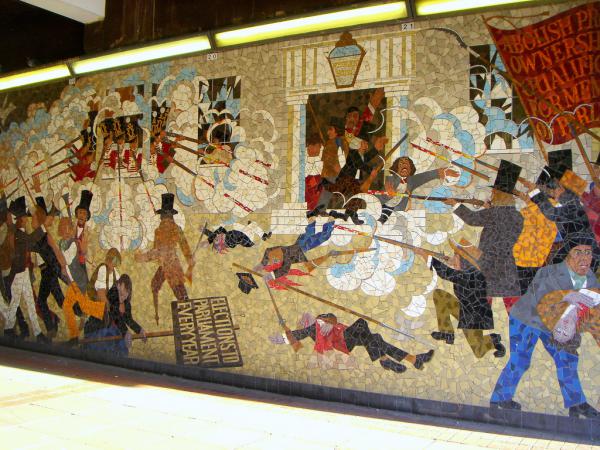
[1839]
Parole di anonimo autore, certamente un militante cartista.
Musica di Dave Moran, del gruppo folk The Halliard
Testo trovato su Mainly Norfolk: English Folk and Other Good Music)
In un disco senza titolo realizzato nel 1968 dal terzetto The Halliard (Dave Moran, Nic Jones e Nigel Paterson) insieme a Jon Raven (fratello di Michael Raven, poeta, musicista ed etnomusicologo, e padre di Paul Raven, bassista dei Ministry e dei Killing Joke).
Newport, Monmouthshire, Wales, novembre 1839.
Il movimento Cartista, che si batteva per una riforma del parlamentarismo in senso egualitario, aveva appena viste respinte le proprie richieste e, anzi, aveva subìto l’arresto di alcuni suoi dirigenti accusati di cospirazione contro la Corona. Gli animi erano molto accesi e si verificarono parecchi disordini in tutto il regno.
A Newport alcune migliaia di cartisti, con alla testa i dirigenti John... (continuer)
Parole di anonimo autore, certamente un militante cartista.
Musica di Dave Moran, del gruppo folk The Halliard
Testo trovato su Mainly Norfolk: English Folk and Other Good Music)
In un disco senza titolo realizzato nel 1968 dal terzetto The Halliard (Dave Moran, Nic Jones e Nigel Paterson) insieme a Jon Raven (fratello di Michael Raven, poeta, musicista ed etnomusicologo, e padre di Paul Raven, bassista dei Ministry e dei Killing Joke).
Newport, Monmouthshire, Wales, novembre 1839.
Il movimento Cartista, che si batteva per una riforma del parlamentarismo in senso egualitario, aveva appena viste respinte le proprie richieste e, anzi, aveva subìto l’arresto di alcuni suoi dirigenti accusati di cospirazione contro la Corona. Gli animi erano molto accesi e si verificarono parecchi disordini in tutto il regno.
A Newport alcune migliaia di cartisti, con alla testa i dirigenti John... (continuer)
As I walked through the town of Portsmouth
(continuer)
(continuer)
envoyé par Bernart Bartleby 28/4/2015 - 14:36
In de loopgraf

2014
Lament
The album version of LAMENT should be heard as a studio reconstruction of a work primarily designed to be performed live, rather than an official new Einstürzende Neubauten LP proper.
In truth, the piece can only be fully realised, as well as best experienced, in its physical embodiment, performed on or by founding member Andrew Unruh’s gigantic instruments and noise generating devices that visually evoke the horrors the work describes or embeds in the sounds they conjure from the filth and terror of the industrialised 20th century world at war with itself.
But in fulfilling what at first appears to be a surprise commission for such a formidable longtime outsider group, Einstürzende Neubauten transformed the earthy, idiosyncratic contents they mined from academic, state, music hall and internet archives with the help of their two researchers into a richly complex cycle of... (continuer)
Lament
The album version of LAMENT should be heard as a studio reconstruction of a work primarily designed to be performed live, rather than an official new Einstürzende Neubauten LP proper.
In truth, the piece can only be fully realised, as well as best experienced, in its physical embodiment, performed on or by founding member Andrew Unruh’s gigantic instruments and noise generating devices that visually evoke the horrors the work describes or embeds in the sounds they conjure from the filth and terror of the industrialised 20th century world at war with itself.
But in fulfilling what at first appears to be a surprise commission for such a formidable longtime outsider group, Einstürzende Neubauten transformed the earthy, idiosyncratic contents they mined from academic, state, music hall and internet archives with the help of their two researchers into a richly complex cycle of... (continuer)
Hoe kan ik dansen in 4/4?
(continuer)
(continuer)
envoyé par dq82 28/4/2015 - 13:16
Parcours:
La Grande Guerre (1914-1918)
The Willy - Nicky Telegrams

2014
Lament
The album version of LAMENT should be heard as a studio reconstruction of a work primarily designed to be performed live, rather than an official new Einstürzende Neubauten LP proper.
In truth, the piece can only be fully realised, as well as best experienced, in its physical embodiment, performed on or by founding member Andrew Unruh’s gigantic instruments and noise generating devices that visually evoke the horrors the work describes or embeds in the sounds they conjure from the filth and terror of the industrialised 20th century world at war with itself.
But in fulfilling what at first appears to be a surprise commission for such a formidable longtime outsider group, Einstürzende Neubauten transformed the earthy, idiosyncratic contents they mined from academic, state, music hall and internet archives with the help of their two researchers into a richly complex cycle of... (continuer)
Lament
The album version of LAMENT should be heard as a studio reconstruction of a work primarily designed to be performed live, rather than an official new Einstürzende Neubauten LP proper.
In truth, the piece can only be fully realised, as well as best experienced, in its physical embodiment, performed on or by founding member Andrew Unruh’s gigantic instruments and noise generating devices that visually evoke the horrors the work describes or embeds in the sounds they conjure from the filth and terror of the industrialised 20th century world at war with itself.
But in fulfilling what at first appears to be a surprise commission for such a formidable longtime outsider group, Einstürzende Neubauten transformed the earthy, idiosyncratic contents they mined from academic, state, music hall and internet archives with the help of their two researchers into a richly complex cycle of... (continuer)
tsar to kaiser]
(continuer)
(continuer)
envoyé par dq82 28/4/2015 - 13:10
Parcours:
La Grande Guerre (1914-1918)
Hymnen

2014
Lament
The album version of LAMENT should be heard as a studio reconstruction of a work primarily designed to be performed live, rather than an official new Einstürzende Neubauten LP proper.
In truth, the piece can only be fully realised, as well as best experienced, in its physical embodiment, performed on or by founding member Andrew Unruh’s gigantic instruments and noise generating devices that visually evoke the horrors the work describes or embeds in the sounds they conjure from the filth and terror of the industrialised 20th century world at war with itself.
But in fulfilling what at first appears to be a surprise commission for such a formidable longtime outsider group, Einstürzende Neubauten transformed the earthy, idiosyncratic contents they mined from academic, state, music hall and internet archives with the help of their two researchers into a richly complex cycle of... (continuer)
Lament
The album version of LAMENT should be heard as a studio reconstruction of a work primarily designed to be performed live, rather than an official new Einstürzende Neubauten LP proper.
In truth, the piece can only be fully realised, as well as best experienced, in its physical embodiment, performed on or by founding member Andrew Unruh’s gigantic instruments and noise generating devices that visually evoke the horrors the work describes or embeds in the sounds they conjure from the filth and terror of the industrialised 20th century world at war with itself.
But in fulfilling what at first appears to be a surprise commission for such a formidable longtime outsider group, Einstürzende Neubauten transformed the earthy, idiosyncratic contents they mined from academic, state, music hall and internet archives with the help of their two researchers into a richly complex cycle of... (continuer)
Heil dir im Siegerkranz,
(continuer)
(continuer)
envoyé par dq82 28/4/2015 - 12:27
Bogey, Bogey, One Pound Ten
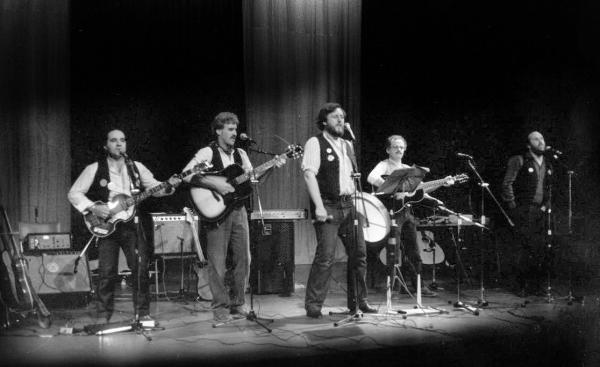
[1982]
Parole di Wynford Jones
Musica de The Chartists
Nell’album eponimo d’esordio
Parole di Wynford Jones
Musica de The Chartists
Nell’album eponimo d’esordio
I am just a common man to the land I give my life
(continuer)
(continuer)
envoyé par Bernart Bartleby 28/4/2015 - 11:39
Chartist Song
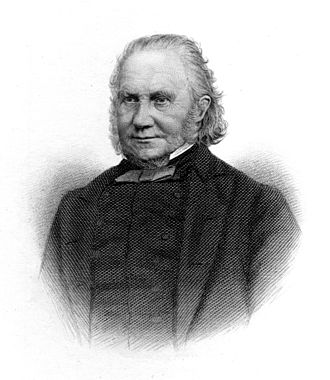
[1842-44]
Versi di Thomas Cooper (1805–1892), calzolaio, poeta ed intellettuale autodidatta, figura preminente del movimento Cartista inglese.
Sull’aria di “Canadian Boat-Song”, nota canzone dei primi dell’800.
Testo trovato sul “mio” sito, Bartleby.com
Thomas Cooper scrisse questa e molte altre canzoni (e pure il suo poema più noto, “Purgatory of Suicides”) nei due anni che trascorse nella prigione di Stafford a causa della sua adesione al movimento Cartista. E di quel movimento proto-socialista fu esponente talmente di spicco che l’ordine del suo arresto arrivò direttamente dalla regina Vittoria, che tra il 1840 ed il 1842 aveva subito ben tre attentati che in molti all’epoca avevano ricondotto ad un complotto dei cartisti.
Uscito di galera Cooper prese le distanze dal radicalismo cartista e purtoppo divenne un molesto predicatore religioso…
Versi di Thomas Cooper (1805–1892), calzolaio, poeta ed intellettuale autodidatta, figura preminente del movimento Cartista inglese.
Sull’aria di “Canadian Boat-Song”, nota canzone dei primi dell’800.
Testo trovato sul “mio” sito, Bartleby.com
Thomas Cooper scrisse questa e molte altre canzoni (e pure il suo poema più noto, “Purgatory of Suicides”) nei due anni che trascorse nella prigione di Stafford a causa della sua adesione al movimento Cartista. E di quel movimento proto-socialista fu esponente talmente di spicco che l’ordine del suo arresto arrivò direttamente dalla regina Vittoria, che tra il 1840 ed il 1842 aveva subito ben tre attentati che in molti all’epoca avevano ricondotto ad un complotto dei cartisti.
Uscito di galera Cooper prese le distanze dal radicalismo cartista e purtoppo divenne un molesto predicatore religioso…
The time shall come when wrong shall end,
(continuer)
(continuer)
envoyé par Bernart Bartleby 28/4/2015 - 11:08
Chartists Anthem
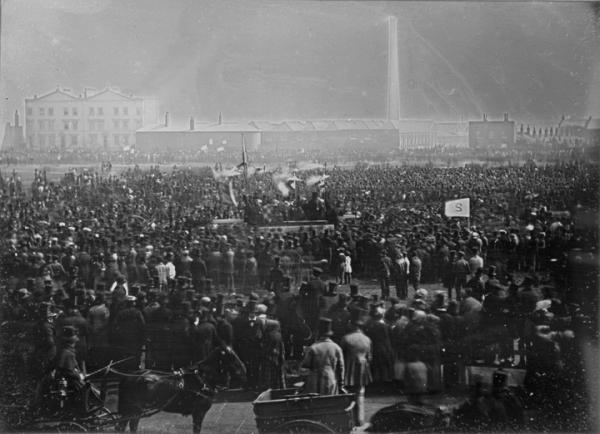
[1840s]
Parole e musica di Ben Boucher (1769-1851), un ex minatore di Dudley, West Midlands (non lontano da Birmingham), che ad un certo punto decise che ne aveva basta di scendere in miniera e divenne un cantore di strada, vivendo della vendita delle sue composizioni.
Il testo che segue è tratto da “The Jolly Machine: Songs of Industrial Protest and Social Discontent from the West Midlands” (1974), uno dei tanti volumi di ricerca curati da Michael Raven (1938-2008), musicista, compositore, poeta ed etnomusicologo originario di Cardiff.
Questo che divenne uno degli inni del movimento “Cartista” inglese è stato interpretato da molti artisti, primi fra tutti Michael Raven e Joan Mills (in “The Jolly Machine” del 1968) e poi Lindsay Cooper (nel suo disco “Rags” del 1980) e i Chumbawamba (in “English Rebel Songs 1381–1914” del 1988, rieditato nel 2003 con l’estensione temporale fino al 1984,... (continuer)
Parole e musica di Ben Boucher (1769-1851), un ex minatore di Dudley, West Midlands (non lontano da Birmingham), che ad un certo punto decise che ne aveva basta di scendere in miniera e divenne un cantore di strada, vivendo della vendita delle sue composizioni.
Il testo che segue è tratto da “The Jolly Machine: Songs of Industrial Protest and Social Discontent from the West Midlands” (1974), uno dei tanti volumi di ricerca curati da Michael Raven (1938-2008), musicista, compositore, poeta ed etnomusicologo originario di Cardiff.
Questo che divenne uno degli inni del movimento “Cartista” inglese è stato interpretato da molti artisti, primi fra tutti Michael Raven e Joan Mills (in “The Jolly Machine” del 1968) e poi Lindsay Cooper (nel suo disco “Rags” del 1980) e i Chumbawamba (in “English Rebel Songs 1381–1914” del 1988, rieditato nel 2003 con l’estensione temporale fino al 1984,... (continuer)
A hundred years, a thousand years,
(continuer)
(continuer)
envoyé par Bernart Bartleby 28/4/2015 - 09:43
Le Bouffon de Franziska
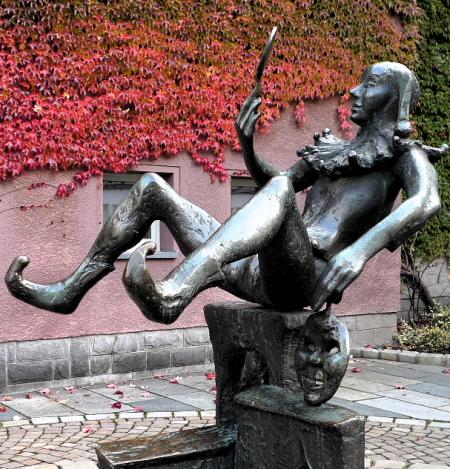
Le Bouffon de Franziska
Chanson française – Le Bouffon de Franziska – Marco Valdo M.I. – 2015
ARLEQUIN AMOUREUX – 5
Opéra-récit historique en multiples épisodes, tiré du roman de Jiří Šotola « Kuře na Rožni » publié en langue allemande, sous le titre « VAGANTEN, PUPPEN UND SOLDATEN » – Verlag C.J. Bucher, Lucerne-Frankfurt – en 1972 et particulièrement de l'édition française de « LES JAMBES C'EST FAIT POUR CAVALER », traduction de Marcel Aymonin, publiée chez Flammarion à Paris en 1979.
Cette fois, Lucien l'âne mon ami, notre Arlequin, amoureux et déserteur, est aux prises avec ses maîtres. Il y a bien sûr l'Arlecchina à laquelle il se doit de rendre des comptes, auprès de qui il veut trouver le sens de sa propre vie ; en qui il met toutes ses espérances.
On ne peut en effet être Arlecchino que si on joue la comédie de l'amour avec son Arlecchina et que toujours, à cette figure, on... (continuer)
Chanson française – Le Bouffon de Franziska – Marco Valdo M.I. – 2015
ARLEQUIN AMOUREUX – 5
Opéra-récit historique en multiples épisodes, tiré du roman de Jiří Šotola « Kuře na Rožni » publié en langue allemande, sous le titre « VAGANTEN, PUPPEN UND SOLDATEN » – Verlag C.J. Bucher, Lucerne-Frankfurt – en 1972 et particulièrement de l'édition française de « LES JAMBES C'EST FAIT POUR CAVALER », traduction de Marcel Aymonin, publiée chez Flammarion à Paris en 1979.
Cette fois, Lucien l'âne mon ami, notre Arlequin, amoureux et déserteur, est aux prises avec ses maîtres. Il y a bien sûr l'Arlecchina à laquelle il se doit de rendre des comptes, auprès de qui il veut trouver le sens de sa propre vie ; en qui il met toutes ses espérances.
On ne peut en effet être Arlecchino que si on joue la comédie de l'amour avec son Arlecchina et que toujours, à cette figure, on... (continuer)
Ach, dit la comtesse Franziska,
(continuer)
(continuer)
envoyé par Marco Valdo M.I. 27/4/2015 - 23:23
Bella Ciao
anonyme

Montesole, 26 aprile 2015
BELLA CIAO
il riallestimento del più importante spettacolo del Folk italiano diventa un disco.
con
Lucilla Galeazzi - voce,
Elena Ledda - voce,
Ginevra Di Marco - voce,
Alessio Lega - voce, chitarra
Andrea Salvadori - chitarra, tzouras, armonium, arrangiamenti
Gigi Biolcati - percussioni, voce
Riccardo Tesi - organetto, arrangiamenti, direzione musicale
BELLA CIAO
il riallestimento del più importante spettacolo del Folk italiano diventa un disco.
con
Lucilla Galeazzi - voce,
Elena Ledda - voce,
Ginevra Di Marco - voce,
Alessio Lega - voce, chitarra
Andrea Salvadori - chitarra, tzouras, armonium, arrangiamenti
Gigi Biolcati - percussioni, voce
Riccardo Tesi - organetto, arrangiamenti, direzione musicale
27/4/2015 - 22:58
Back Alley Surgery
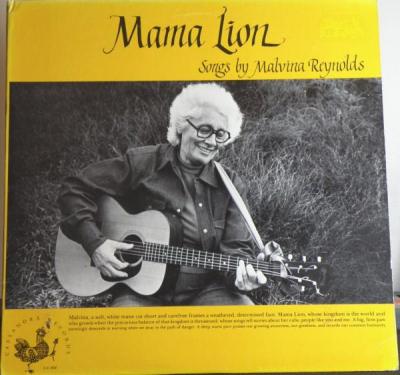
Una canzone che si trova solo in un disco postumo pubblicato nel 1980 ed intitolato "Mama Lion".
(B.B.)
(B.B.)
Supreme Court sits in Washington
(continuer)
(continuer)
27/4/2015 - 19:29
Captain Swing

[1995]
Parole e musica di Graham Moore
Nel suo disco intitolato “Tolpuddle Man”
Interpretata anche da Roy Bailey nel suo “Coda” del 2000.
Negli anni 30 dell’800 nelle campagne inglesi fecero la loro comparsa le prime macchine agricole, così come alcuni decenni prima erano comparsi i telai meccanici nelle fabbriche tessili. L’accoglienza, anche in questo caso, non fu buona, perché accompagnata da licenziamenti di massa e diminuzione delle paghe. Nelle campagne inglesi del Sussex e del Kent gruppi di manifestanti cominciarono ad attaccare le proprietà per distruggere le macchine o appiccare il fuoco ai covoni mietuti con esse. In alcune zone, le azioni vennero annunciate con lettere minatorie a firma “Swing”:
“Sir, Your name is down amongst the Black hearts in the Black Book and this is to advise you and the like of you, who are Parson Justasses, to make your wills. Ye have been the Blackguard... (continuer)
Parole e musica di Graham Moore
Nel suo disco intitolato “Tolpuddle Man”
Interpretata anche da Roy Bailey nel suo “Coda” del 2000.
Negli anni 30 dell’800 nelle campagne inglesi fecero la loro comparsa le prime macchine agricole, così come alcuni decenni prima erano comparsi i telai meccanici nelle fabbriche tessili. L’accoglienza, anche in questo caso, non fu buona, perché accompagnata da licenziamenti di massa e diminuzione delle paghe. Nelle campagne inglesi del Sussex e del Kent gruppi di manifestanti cominciarono ad attaccare le proprietà per distruggere le macchine o appiccare il fuoco ai covoni mietuti con esse. In alcune zone, le azioni vennero annunciate con lettere minatorie a firma “Swing”:
“Sir, Your name is down amongst the Black hearts in the Black Book and this is to advise you and the like of you, who are Parson Justasses, to make your wills. Ye have been the Blackguard... (continuer)
The sun's gone down, the shutters drawn
(continuer)
(continuer)
envoyé par Bernart Bartleby 27/4/2015 - 16:21
Stelutis Alpinis

Ho 65 anni. Ho cominciato ad ascoltare questa "Preghiera di un popolo" (e che da questa terra friulana nasce)quando avevo 6-7 anni. La cantavano gli avventori dell'osteria dei miei,nelle sere d'inverno intorno alla stufa. Contadini , operai,con qualche "Ragazzo del '99" : gente seria e dura; ma, finito il canto, un lungo silenzio continuava a "cantare" ... nel Cuore e negli Occhi.
Ed io, ancora oggi ogni volta che l'ascolto, sento in gola quel famoso "grop".
Provo anch'io una "traduzione" delle ultime due strofe.
Prendi su, prendi una stellina:
è il ricordo del nostro amore.
Tu gli darai un piccolo bacio
e poi nascondila nel seno.
Quando a casa Tu sei sola
e con il Cuore preghi per me,
Il mio spirito Ti vola attorno,
io e la stella
siamo lì con Te.
Trovo Molto Bella anche la "versione" di De Gregori.
Ed io, ancora oggi ogni volta che l'ascolto, sento in gola quel famoso "grop".
Provo anch'io una "traduzione" delle ultime due strofe.
Prendi su, prendi una stellina:
è il ricordo del nostro amore.
Tu gli darai un piccolo bacio
e poi nascondila nel seno.
Quando a casa Tu sei sola
e con il Cuore preghi per me,
Il mio spirito Ti vola attorno,
io e la stella
siamo lì con Te.
Trovo Molto Bella anche la "versione" di De Gregori.
Luigi Girardi 27/4/2015 - 12:20
I Won’t Be a Slave
anonyme

La canzone femminista sulla cui melodia le Lowell Mill Girls costruirono il loro inno di sciopero.
In molte raccolte della prima metà dell’800, come per esempio “The American Minstrel: A Choice Collection of the Most Popular Songs, Glees, Duets, Choruses, & C.”, a cura di J.A. James, Cincinnati, 1837. La data di composizione dovrebbe essere comunque precedente, primissimi anni dell’800.
In molte raccolte della prima metà dell’800, come per esempio “The American Minstrel: A Choice Collection of the Most Popular Songs, Glees, Duets, Choruses, & C.”, a cura di J.A. James, Cincinnati, 1837. La data di composizione dovrebbe essere comunque precedente, primissimi anni dell’800.
I WON'T BE A NUN
(continuer)
(continuer)
envoyé par Bernart Bartleby 27/4/2015 - 10:46
And a-Begging I Will Go (or the Begging Song)
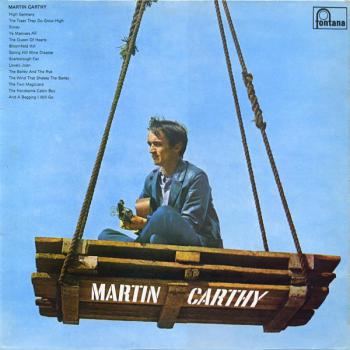
[XVII sec.]
Una ballata che deriva probabilmente dal The Beggars Chorus de “A Jovial Crew, or the Merry Beggars”, una commedia scritta dal drammaturgo inglese Richard Brome intorno al 1640.
Nella sua carriera Martin Carthy ne ha offerto più versioni, tutte riconducibili al testo accolto nella raccolta “Vagabond Songs and Ballads of Scotland” a cura di Robert Ford (Londra, 1899), dove però la paternità è attribuita al poeta scozzese settecentesco Alexander Ross.
Nel disco d’esordio, eponimo, di Martin Carthy del 1965.
Martin Carthy s’ispirò ad una precedente versione di Ewan MacColl (che incise la canzone nel suo disco del 1966 “The Manchester Angel”, con Peggy Seeger) che però non sono riuscito ad identificare con certezza tra le tante presenti in Rete. Contribuisco quindi qui innanzitutto il testo adottato da Carthy nel 1965, così come riportato su Mainly Norfolk: English Folk and Other Good Music
Una ballata che deriva probabilmente dal The Beggars Chorus de “A Jovial Crew, or the Merry Beggars”, una commedia scritta dal drammaturgo inglese Richard Brome intorno al 1640.
Nella sua carriera Martin Carthy ne ha offerto più versioni, tutte riconducibili al testo accolto nella raccolta “Vagabond Songs and Ballads of Scotland” a cura di Robert Ford (Londra, 1899), dove però la paternità è attribuita al poeta scozzese settecentesco Alexander Ross.
Nel disco d’esordio, eponimo, di Martin Carthy del 1965.
Martin Carthy s’ispirò ad una precedente versione di Ewan MacColl (che incise la canzone nel suo disco del 1966 “The Manchester Angel”, con Peggy Seeger) che però non sono riuscito ad identificare con certezza tra le tante presenti in Rete. Contribuisco quindi qui innanzitutto il testo adottato da Carthy nel 1965, così come riportato su Mainly Norfolk: English Folk and Other Good Music
Of all the trades in England the beggin' is the best
(continuer)
(continuer)
envoyé par Bernart Bartleby 27/4/2015 - 08:43
Parcours:
Mort au Travail
Il crociato

Chanson italienne – Il crociato – Joe Fallisi – 2006
Texte inédit envoyé par Joe.
« Pour illustrer la barbarie de la conquête et les attitudes particulières de ses acteurs, voilà les réflexions de deux parmi rares critiques blancs contemporains des événements. Le missionnaire dominicain espagnol Bartolomé de Las Casas écrivait dans sa Brevísima relación de la destruyción de las Indias (1552) :
« Ils entraient dans les villages et ne laissaient ni enfants, ni vieux, ni femmes enceintes ou parturientes, si ce n'est après les avoir éventrées et coupées en morceaux. Ils pariaient lequel savait déchirer un homme d'un seul coup de couteau, ou lui coupait la tête d'un coup de pique, ou lui mettait à nu les viscères. Ils arrachaient les petits du sein des mères et leur claquaient la tête sur les roches. D'autres, de dessus leurs épaules, les lançaient dans les fleuves ; ils les embrochaient... (continuer)
Texte inédit envoyé par Joe.
« Pour illustrer la barbarie de la conquête et les attitudes particulières de ses acteurs, voilà les réflexions de deux parmi rares critiques blancs contemporains des événements. Le missionnaire dominicain espagnol Bartolomé de Las Casas écrivait dans sa Brevísima relación de la destruyción de las Indias (1552) :
« Ils entraient dans les villages et ne laissaient ni enfants, ni vieux, ni femmes enceintes ou parturientes, si ce n'est après les avoir éventrées et coupées en morceaux. Ils pariaient lequel savait déchirer un homme d'un seul coup de couteau, ou lui coupait la tête d'un coup de pique, ou lui mettait à nu les viscères. Ils arrachaient les petits du sein des mères et leur claquaient la tête sur les roches. D'autres, de dessus leurs épaules, les lançaient dans les fleuves ; ils les embrochaient... (continuer)
LE CROISÉ
(continuer)
(continuer)
envoyé par Marco Valdo M.I. 26/4/2015 - 21:53
A Margalida

Conocí a Margalida en 1974; unos amigos me la presentaron. Perdí su pista después del fusilamiento de Puig Antich. Ahora no sé lo que hace. Me parece que está por Mallorca pero no estoy seguro. ¿Por qué he realizado esta canción? Bueno, ademas que la conocía personalmente, hay cosas que todavía te recuerdan las paredes... Y no creo que sea oportunismo el haber hecho esta canción ahora, porque si fuera así la habría grabado hace dos o tres años.
Joan Isaac - entrevista en mundodiario, 6 diciembre 1977
Joan Isaac - entrevista en mundodiario, 6 diciembre 1977
26/4/2015 - 21:19
Get Your Filthy Hands Off My Desert
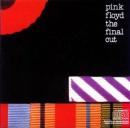
La frase "Took a Cruiser with all the hands" signigica più o meno "Ha preso un incrociatore con tutti gli effettivi", "all the handa" è un termine marinaresco che significa "tutte le mani (disponibili)". E' nato quando le navi andavano a vela e le mani servivano a manovrare le funi. E' poi rimasto indicando genericamente i marinai imbarcati.
casimiro 26/4/2015 - 00:55
The Lee Shore

Qui è spiegato - in Inglese - cosa si intende con "lee shore". Agli appassionati di nautica il compito di tradurcelo!
http://en.wikipedia.org/wiki/Lee_shore
http://en.wikipedia.org/wiki/Lee_shore
Luca 26/4/2015 - 00:19
Long Time Gone
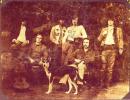
La "foto antichizzata" è quella usata per la copertina di Déjà Vu. Il batterista è Dallas Taylor (morto a Gennaio 2015), e non Johnny Barbata!
Luca 26/4/2015 - 00:07
Se il papa è andato via
anonyme

Magnifica canzone. Sicuramente contro la guerra, perché è contro gli oppressori, i post su Bergoglio e Videla dovrebbero chiarire questa vicinanza a tutti...
Se il papa è andato via...buon viaggio e così sia!
Mai più sui troni siedano imperatori o re! :)
Se il papa è andato via...buon viaggio e così sia!
Mai più sui troni siedano imperatori o re! :)
Titus 25/4/2015 - 21:06
Amendment

(2012)
Album: ¿Which Side Are You On?
Album: ¿Which Side Are You On?
Wouldn't it be nice if
(continuer)
(continuer)
25/4/2015 - 18:42
Otto settembre bella data
anonyme
Mi sembra che sia pressochè identica a Otto settembre, inserita da Riccardo già nel 2006...
B.B. 25/4/2015 - 16:45
Joe Hill's Last Will
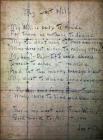
24 aprile 2015
Interpretata da Utah Phillips
Interpretata da Utah Phillips
IL TESTAMENTO DI JOE HILL
(continuer)
(continuer)
24/4/2015 - 15:27
We Just Come to Work Here, We Don’t Come to Die
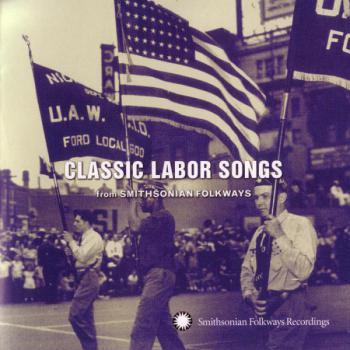
Parole e musica di Harry Stamper, uno scaricatore di porto di Coos Bay, Oregon, che fu anche sindacalista e cantautore. Credo che il testo sia stato riveduto e corretto dalla Feeney.
Nella raccolta “Classic Labor Songs” pubblicata dalla Smithsonian Folkways nel 2006.
Harry Stamper scrisse questa canzone quando un giorno la compagnia per la quale lavorava gli ordinò di muovere una gran pila di tronchi senza che vi fossero le necessarie condizioni di sicurezza. Lui si rifiutò e fu licenziato. Fece causa, il giudice gli diede ragione e fu reintegrato e risarcito.
“OSHA”, nel ritornello, è l’acronimo dell’“Occupational Safety and Health Administration”, l’agenzia federale statunitense che vigila sulla sicurezza e salute sui posti di lavoro.
Nella raccolta “Classic Labor Songs” pubblicata dalla Smithsonian Folkways nel 2006.
Harry Stamper scrisse questa canzone quando un giorno la compagnia per la quale lavorava gli ordinò di muovere una gran pila di tronchi senza che vi fossero le necessarie condizioni di sicurezza. Lui si rifiutò e fu licenziato. Fece causa, il giudice gli diede ragione e fu reintegrato e risarcito.
“OSHA”, nel ritornello, è l’acronimo dell’“Occupational Safety and Health Administration”, l’agenzia federale statunitense che vigila sulla sicurezza e salute sui posti di lavoro.
Well I’ve been working here for fifteen years
(continuer)
(continuer)
envoyé par Bernart Bartleby 24/4/2015 - 14:16
The Song of the Rail
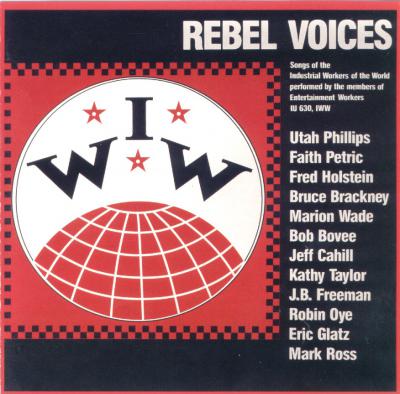
[1920s]
Versi di Ralph Chaplin
Musica di Mark Ross
Nella raccolta “Rebel Voices: Songs Of The Industrial Workers Of The World”, 1988
Versi di Ralph Chaplin
Musica di Mark Ross
Nella raccolta “Rebel Voices: Songs Of The Industrial Workers Of The World”, 1988
Life here in town is too damn monotonous,
(continuer)
(continuer)
envoyé par Bernart Bartleby 24/4/2015 - 13:50
The Strike
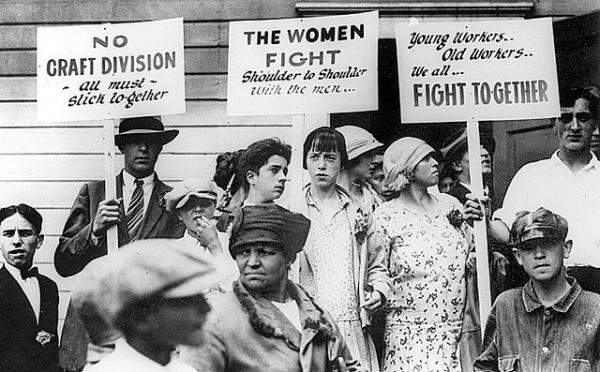
[1910s]
Versi di Covington Hall, che spesso si firmava col nome di penna “Covami” (1871-1952), giornalista, poeta e militante sindacale originario del Mississippi.
Nella sua raccolta intitolata “Songs of Love and Rebellion” pubblicata nel 1915.
Versi di Covington Hall, che spesso si firmava col nome di penna “Covami” (1871-1952), giornalista, poeta e militante sindacale originario del Mississippi.
Nella sua raccolta intitolata “Songs of Love and Rebellion” pubblicata nel 1915.
Say what ye will, ye owls of night,
(continuer)
(continuer)
envoyé par Bernart Bartleby 24/4/2015 - 13:13
Battle Hymn of Toil
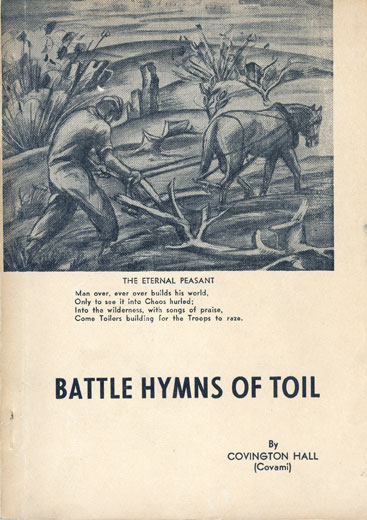
[1910]
Versi di Covington Hall, che spesso si firmava col nome di penna “Covami” (1871-1952), giornalista, poeta e militante sindacale originario del Mississippi.
Questa è forse la sua canzone più famosa, sulla falsariga de “The Battle Hymn of the Republic”, che a sua volta usava la melodia di “John Brown's Body”.
Nella raccolta di Covington Hall intitolata “Songs of Love and Rebellion” pubblicata nel 1915.
Versi di Covington Hall, che spesso si firmava col nome di penna “Covami” (1871-1952), giornalista, poeta e militante sindacale originario del Mississippi.
Questa è forse la sua canzone più famosa, sulla falsariga de “The Battle Hymn of the Republic”, che a sua volta usava la melodia di “John Brown's Body”.
Nella raccolta di Covington Hall intitolata “Songs of Love and Rebellion” pubblicata nel 1915.
Onward! Onward! Onward!
(continuer)
(continuer)
envoyé par Bernart Bartleby 24/4/2015 - 13:04
Why I Am a Revolutionist

[1910]
Versi di Covington Hall, che spesso si firmava col nome di penna “Covami” (1871-1952), giornalista, poeta e militante sindacale originario del Mississippi.
Ignoro se questa poesia – conosciuta anche con il titolo “Why I Am A Socialist” - sia stata messa in musica, ma come tutte le poesie di “Covami” nacque come canzone e fu infatti inclusa nella sua raccolta intitolata “Songs of Love and Rebellion” pubblicata nel 1915.
Versi di Covington Hall, che spesso si firmava col nome di penna “Covami” (1871-1952), giornalista, poeta e militante sindacale originario del Mississippi.
Ignoro se questa poesia – conosciuta anche con il titolo “Why I Am A Socialist” - sia stata messa in musica, ma come tutte le poesie di “Covami” nacque come canzone e fu infatti inclusa nella sua raccolta intitolata “Songs of Love and Rebellion” pubblicata nel 1915.
I have heard the child-slaves weeping when the world was fair and bright,
(continuer)
(continuer)
envoyé par Bernart Bartleby 24/4/2015 - 12:51
The Red Feast
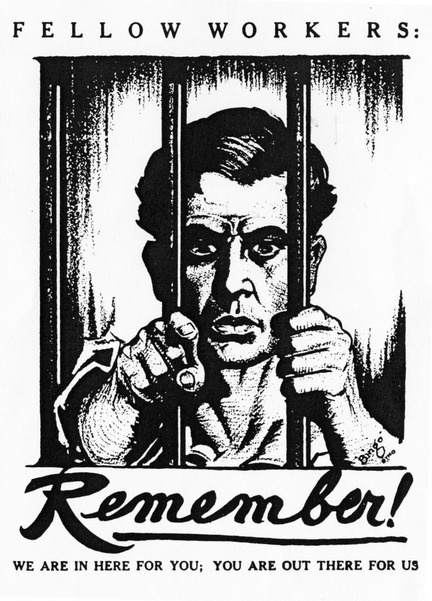
[1914]
Versi di Ralph Chaplin, originariamente pubblicati nella raccolta autoprodotta intitolata “When The Leaves Come Out And Other Rebel Verses By Ralph Chaplin”, Cleveland, 1917.
Poi in “Bars and Shadows. The Prison Poems of Ralph Chaplin”, raccolta pubblicata nel 1922.
Interpretata da Willard Losinger sulla musica di "Hatikva" (l'inno nazionale israeliano)
Propongo questi versi di Ralph Chaplin come Extra solo perchè non sono certo che siano mai stati messi in musica, come peraltro invece lo furono molte sue poesie (* nota: avendo trovato la versione musicata la abbiamo poi tolta dagli extra).
Ma mi pareva che questo intenso appello contro la guerra non potesse mancare sulle CCG/AWS.
Schierarsi contro la guerra, specie quando ne risuonano i tamburi o già le esplosioni, è sempre molto coraggioso e pericoloso. Ne sapevano qualcosa Ralph Chaplin, Joe Hill, Frank Little, Wesley Everest... (continuer)
Versi di Ralph Chaplin, originariamente pubblicati nella raccolta autoprodotta intitolata “When The Leaves Come Out And Other Rebel Verses By Ralph Chaplin”, Cleveland, 1917.
Poi in “Bars and Shadows. The Prison Poems of Ralph Chaplin”, raccolta pubblicata nel 1922.
Interpretata da Willard Losinger sulla musica di "Hatikva" (l'inno nazionale israeliano)
Propongo questi versi di Ralph Chaplin come Extra solo perchè non sono certo che siano mai stati messi in musica, come peraltro invece lo furono molte sue poesie (* nota: avendo trovato la versione musicata la abbiamo poi tolta dagli extra).
Ma mi pareva che questo intenso appello contro la guerra non potesse mancare sulle CCG/AWS.
Schierarsi contro la guerra, specie quando ne risuonano i tamburi o già le esplosioni, è sempre molto coraggioso e pericoloso. Ne sapevano qualcosa Ralph Chaplin, Joe Hill, Frank Little, Wesley Everest... (continuer)
Go fight, you fools! Tear up the earth with strife
(continuer)
(continuer)
envoyé par Bernart Bartleby 24/4/2015 - 11:56
Blasphemy
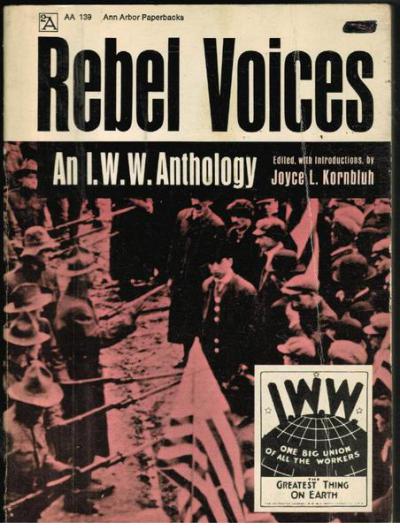
Canzone a firma “Covami”, nome di penna di Covington Hall (1871-1952), giornalista, poeta e militante sindacale originario del Mississippi.
Fu autore di una raccolta di canzoni intitolata “Songs of Love and Rebellion” pubblicata nel 1915, ma questa “Blasphemy” – dove il “wobbly” imprigionato e giustiziato è paragonato a Cristo – non vi è inclusa ed è sicuramente precedente, facendo parte della collezione del militante anarchico Jo Labadie, da lui conferita all’Università del Michigan nel 1911. La “Labadie Collection” è forse la più completa raccolta di materiale sulle lotte anarco-sindacali negli USA tra fine 800 ed inizio 900.
Testo trovato su “Rebel Voices: An IWW Anthology”, a cura di Joyce L. Kornbluh, USA 1964.
Qual è la differenza tra Cristo e il militante sindacale? Nessuna: entrambi furono arrestati, torturati ed uccisi con l’accusa di aver voluto “detronizzare Dio e sovvertire l’ordine costituito”…
Fu autore di una raccolta di canzoni intitolata “Songs of Love and Rebellion” pubblicata nel 1915, ma questa “Blasphemy” – dove il “wobbly” imprigionato e giustiziato è paragonato a Cristo – non vi è inclusa ed è sicuramente precedente, facendo parte della collezione del militante anarchico Jo Labadie, da lui conferita all’Università del Michigan nel 1911. La “Labadie Collection” è forse la più completa raccolta di materiale sulle lotte anarco-sindacali negli USA tra fine 800 ed inizio 900.
Testo trovato su “Rebel Voices: An IWW Anthology”, a cura di Joyce L. Kornbluh, USA 1964.
Qual è la differenza tra Cristo e il militante sindacale? Nessuna: entrambi furono arrestati, torturati ed uccisi con l’accusa di aver voluto “detronizzare Dio e sovvertire l’ordine costituito”…
"You shall not kill. You shall love your neighbor as yourself
(continuer)
(continuer)
envoyé par Bernart Bartleby 24/4/2015 - 11:13
Casey Jones, the Union Scab

24 aprile 2015
Due parole del traduttore, e forse anche tre. Probabilmente Joe Hill non ce l'aveva direttamente con il Casey Jones storico, nonostante le premesse non siano sbagliate; qui “Casey Jones” è una sorta di simbolo del crumiro, preso apposta perché considerato un eroe da tutti. La si potrebbe tranquillamente definire una provocazione. Il macchinista crumiro di questa canzone è, del resto, di Los Angeles (“an Angelino”) e lavora sulla linea South Pacific (SP), mentre Casey Jones era di Jackson, Tennessee ed aveva vissuto vicino a Cayce, Kentucky (da cui il soprannome “Casey”; il suo vero nome era Jonathan Luther Jones), e lavorava sulla linea Illinois Central Railroad (IC). Sebbene fosse considerato una persona ambiziosa, non risulta che avesse mai fatto il crumiro o che avesse mai danneggiato altri lavoratori. Il suo famoso incidente, avvenuto il 30 aprile 1900 alla guida della locomotiva “Cannonball”, fu in gran parte dovuto ad uno scambio bloccato che non gli era stato segnalato.
Due parole del traduttore, e forse anche tre. Probabilmente Joe Hill non ce l'aveva direttamente con il Casey Jones storico, nonostante le premesse non siano sbagliate; qui “Casey Jones” è una sorta di simbolo del crumiro, preso apposta perché considerato un eroe da tutti. La si potrebbe tranquillamente definire una provocazione. Il macchinista crumiro di questa canzone è, del resto, di Los Angeles (“an Angelino”) e lavora sulla linea South Pacific (SP), mentre Casey Jones era di Jackson, Tennessee ed aveva vissuto vicino a Cayce, Kentucky (da cui il soprannome “Casey”; il suo vero nome era Jonathan Luther Jones), e lavorava sulla linea Illinois Central Railroad (IC). Sebbene fosse considerato una persona ambiziosa, non risulta che avesse mai fatto il crumiro o che avesse mai danneggiato altri lavoratori. Il suo famoso incidente, avvenuto il 30 aprile 1900 alla guida della locomotiva “Cannonball”, fu in gran parte dovuto ad uno scambio bloccato che non gli era stato segnalato.
CASEY JONES IL CRUMIRO
(continuer)
(continuer)
24/4/2015 - 10:25
×
![]()



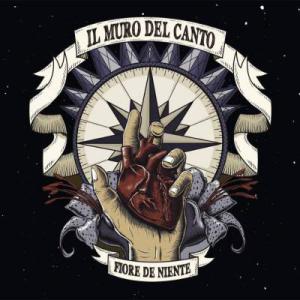

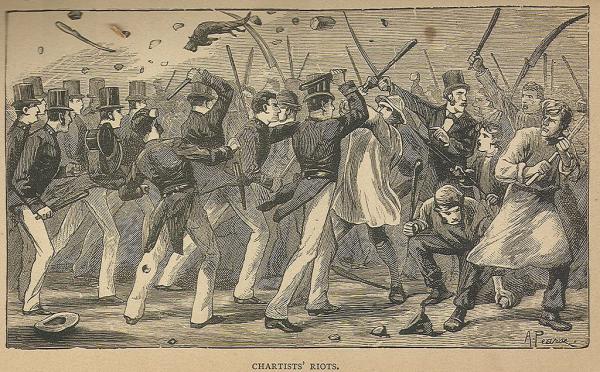

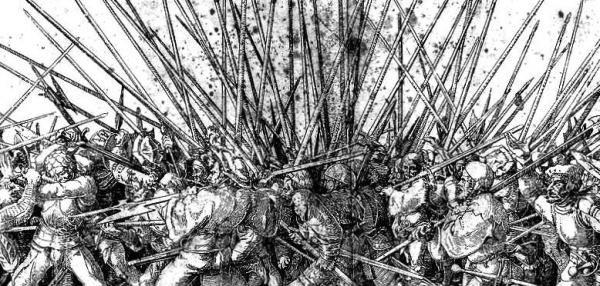
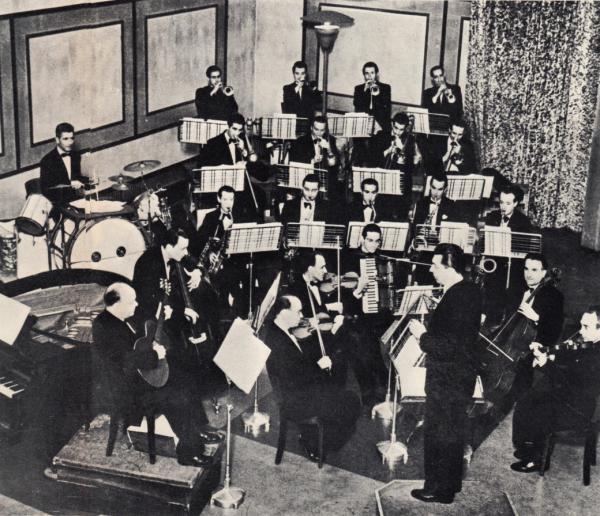

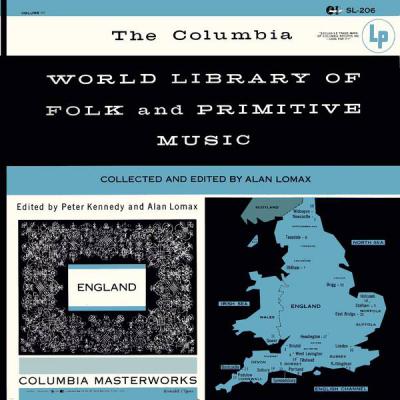

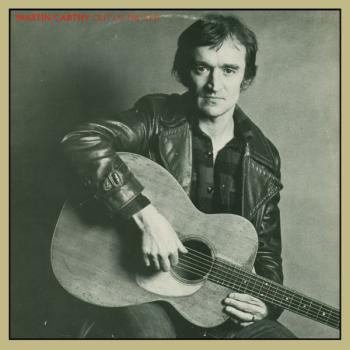


![Τῆς Ἁγίας Σοφίας [Σώπασε κυρὰ Δέσποινα]](img/upl/ayasofya.jpg)
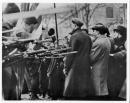
La storia di uno sconfitto della guerra civile. L'esilio in Francia, il tentativo di ricominciare una nuova vita, il sogno - che per molti non fu possibile o lo fu troppo tardi - di un ritorno in una patria liberata dalla dittatura.